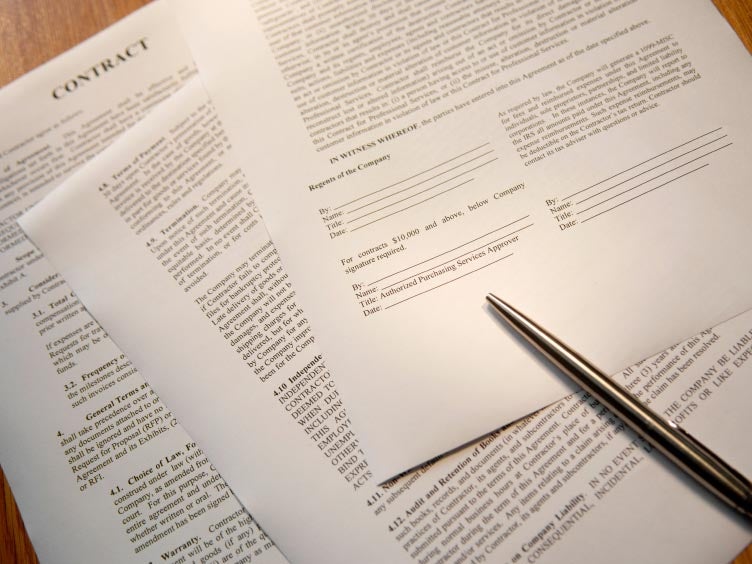11 August 2020
6 min read
Published by:

Inducing a breach of contract is a rarely used but available cause of action in Australian common law. The recent case of Sealed Air Australia Pty Limited v Aus-Lid Enterprises Pty Ltd [2020] FCA 29, involving an entity inducing a party to breach an existing binding patent licence agreement, tested this cause of action and reminds us of the availability and extent of such a claim.
Background
Aus-Lid Enterprises (Owner) was the registered owner of Patent AU754978 (Patent) – a patent for a yoghurt container lid containing a built-in spoon. Aus-Lid Operations (Licensee) was the exclusive licensee of the Patent. In January 2011, the Licensee contracted with Sealed Air Australia Pty Limited (Sealed), granting Sealed an “irrevocable, exclusive sub-licence” to exploit the Patent for pre-packaged dairy products in Australia and New Zealand (Patent Licence). Pursuant to the Patent Licence, Sealed began supplying the patented lids to Chobani, and remained as the exclusive supplier until about mid-2014.
In mid-2014, Visy Packaging Pty Ltd (Visy) began to manufacture and sell the patented lids to Chobani. This was done pursuant to an in principle agreement between Visy and the Licensee. Sealed noticed a reduction in the number of lids it was supplying to Chobani. By March 2015, Visy had replaced Sealed as the sole supplier of the patented lids to Chobani.
In July 2014, Sealed’s lawyers wrote to the Licensee, demanding that the Licensee revoke any rights it had granted to Visy on the basis that this was in breach of the Patent Licence. The Licensee refused, alleging that Sealed had breached the Patent Licence first.
In September 2014, Sealed’s lawyers wrote to Visy directly, informing Visy of the “irrevocable, exclusive sub-licence”, and subsequently provided Visy with a copy of the Patent Licence itself. In December 2014, the Licensee and Visy purported to formalise their agreement by entering into an Intellectual Property Agreement, whereby the Licensee agreed to grant Visy a non-exclusive licence to exploit the Patent.
Sealed commenced proceedings against Visy, suing for damages on the basis of the tort of inducing breach of contract.
Principles
The Federal Court confirmed the requirements of the inducing breach of contract tort as being:
In essence, Sealed claimed that:
Decision
Visy submitted that:
Based on the letter from Sealed’s lawyers to Visy in September 2014, the Court found that Visy was aware of the Patent Licence and knew that it contained terms to the effect of an irrevocable and exclusive sub-licence. This knowledge was sufficient to ground an intention on Visy’s part to procure the Licensee’s breach of the Patent Licence.
The Court stated that even if this was incorrect, it was sufficient if Visy had deliberately disregarded, or been wilfully blind or recklessly indifferent to, the fact that the Licensee was in breach of the Patent Licence. The Court determined that this was the case. Visy had relied on Mr de Souza’s representations without obtaining any independent legal advice about the status or enforceability of the Patent Licence (or without undertaking any other due diligence more generally). Importantly, the Court found that this had been intentionally done to align with Visy’s commercial interests of continuing to manufacture and supply the patented lids to Chobani.
A defence to the tort of inducing breach of contract is where there is a reasonable, bona fide belief that a party’s conduct does not induce a breach of contract – for example, where the party has a reasonable bona fide belief that the relevant contract is no longer on foot. This reasonableness is to be assessed by a reference to a person in the position of the defendant. The Court found that this defence was not applicable in this case. While Mr de Souza had represented that Sealed had previously repudiated the Patent Licence, the Court found that, for an experienced lawyer such as the General Counsel at Visy, this did not represent a basis for a reasonable, bona fide belief that the Patent Licence was no longer effective. There had been no further investigations from Visy in relation to the alleged repudiation, and the Licensee had never made any representation that any such repudiation had been accepted or that the Patent Licence had been terminated.
On the basis of the Court’s finding that Sealed would have remained as the supplier of the patented lids, but for the breach induced by Visy, the Court ordered Visy to pay Sealed damages of over $1.6 million for lost profits. The calculation was based on Visy’s gross profits from manufacturing and supplying the lids from the time Visy became aware of Sealed’s rights under the Patent Licence in September 2014, up until the expiration of the Patent Licence.
Key takeaways
This case illustrates the importance of undertaking detailed due diligence and all reasonable enquires before entering into any commercial transaction. In the event that any red flags appear, either in the pre-bid, bid or project stage, the onus will be on that party to seek independent legal advice to understand its position and take any appropriate next steps. Failure to do so may expose that party to the risk of liability for breach of a third party contract.
Disclaimer
The information in this publication is of a general nature and is not intended to address the circumstances of any particular individual or entity. Although we endeavour to provide accurate and timely information, we do not guarantee that the information in this newsletter is accurate at the date it is received or that it will continue to be accurate in the future.
Published by: